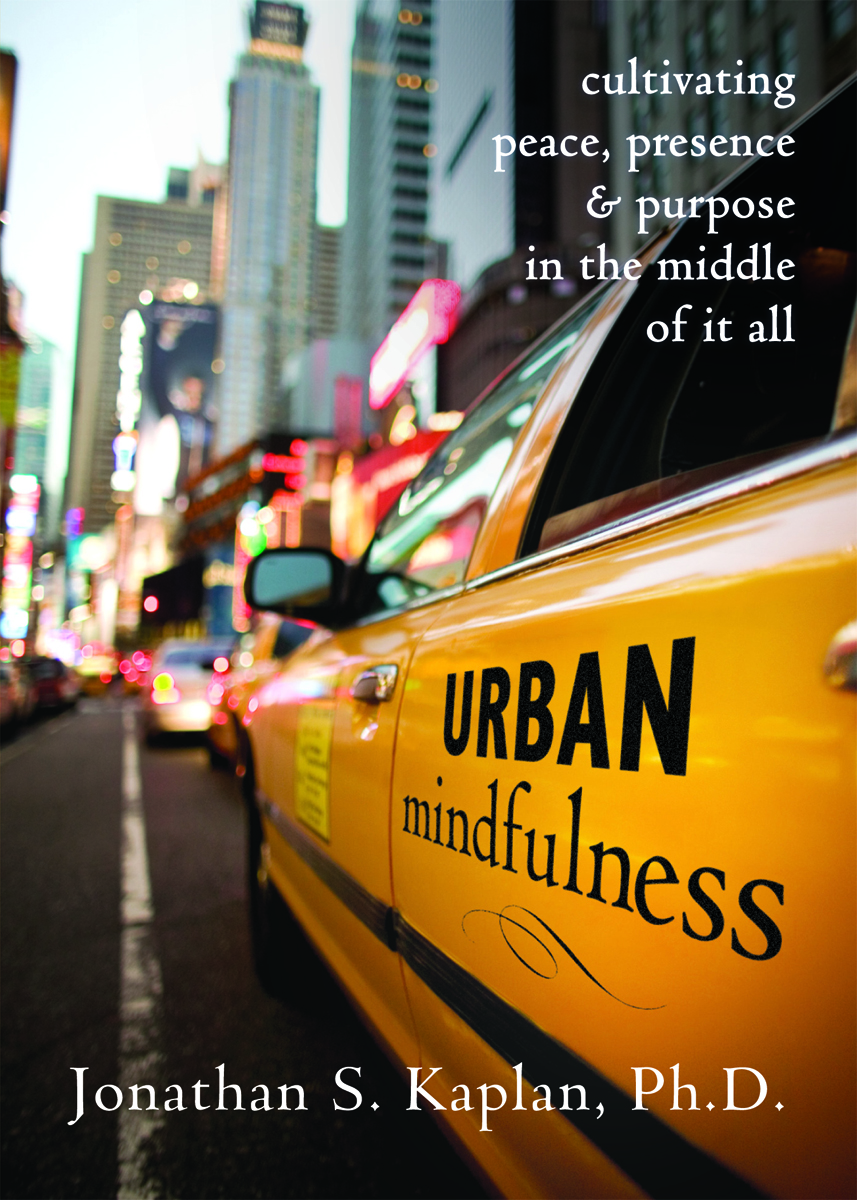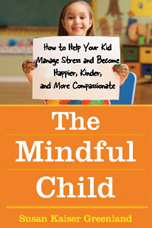By Jonathan S. Kaplan, Ph.D.
This month, I had an opportunity to conduct an e-mail interview with Dr. Miles Neale, a clinical psychologist and devoted Buddhist teacher. He has considerable expertise as a psychotherapist and meditation instructor, serving as a faculty member of the Tibet House, Lineage Mentor of The Interdependence Project, and consultant to many wellness programs throughout the country. To learn more about Dr. Neale, please visit his website, Buddhist Psychotherapy.
 Also, Dr. Neale will be teaching an all-day workshop on mindful at Pure Yoga in NYC on Sunday, November 13th (Click here for details: Mindfulness Workshop). Given Dr. Neale's knowledge and experience, it promises to be very informative, helpful, and--dare I say--enlightening.
Also, Dr. Neale will be teaching an all-day workshop on mindful at Pure Yoga in NYC on Sunday, November 13th (Click here for details: Mindfulness Workshop). Given Dr. Neale's knowledge and experience, it promises to be very informative, helpful, and--dare I say--enlightening.
Later this month, we will be presenting a talk together on mindfulness, Buddhism, and psychotherapy. It will be held at The Interdependence Project in NYC on Monday, November 21, from 7 – 9 pm (Click here for details: Mindfulness and Insight). It should be a lively and interesting discussion: I’ll be talking about mindfulness and cognitive-behavioral therapy, while Dr. Neale will be discussing Buddhism and psychodynamic therapy. Hope to see you there!
Personal
How did you become involved in Buddhism?
When I was 20 years old I lived for five months in a Buddhist monastery in Bodh Gaya, India, the site of the Buddha's enlightenment. Having been brought up surrounded by affluence yet still feeling dissatisfied, I was looking for an alternative to consumerist culture. I found everything I had been searching for my whole life and more, and have never looked back.
Why did you become engaged with the Gelugpa school of Tibetan Buddhism specifically as opposed to other forms of Buddhism?
It wasn't by choice. I became affiliated with the Gelugpa school of Tibetan Buddhism through my mentor Dr. Joe Loizzo. At the time I was in need of direction and the teacher appeared, and with him came an authentic lineage. Joe's mentor happens to be Bob Thurman, and Bob's mentor is His Holiness the Dalai Lama.
What have you found to be the most helpful or nourishing aspect of your practice?
The most helpful would be the close mentoring, guidance and compassion shown to me by all my teachers. I couldn't have made it without them. The most nourishing would have to be spiritual friendships and sharing the Dharma with others.
Practice
What suggestions do you have for people who wish to practice mindfulness in the city?
In general, I advise people to conjoin their study of mindfulness meditation with the wisdom teachings of emptiness and the ethical teachings of causality (karma). Follow the complete scientific method of the Three Higher Trainings based on the Buddha's coherent psychology of the Four Noble Truths. That will ensure the result of lasting freedom and happiness. For those who live and practice in the city, I also recommend the mind-training teachings (lojong) of Tibetan Buddhism. Those are black belt level practices of converting challenging interpersonal interactions into spiritual opportunities.
Professional
The roles of Buddhist teacher and psychotherapist are distinct, yet related. What are your observations of the differences and similarities?
Ultimately, they serve the same function to help people out of suffering. Practically, there are certain important differences. For example, psychotherapists are trained to treat psychopathology and help restore or develop ego functioning. Buddhist teachers can sometimes have little training in severe mental disturbances, but may have the advantage in helping people who already possess stable and coherent egos to achieve exceptional levels of happiness and wellbeing that Western traditions have only just begun to understand. Also, I think psychotherapists know how to skillfully use the human relationship and interpersonal dynamics as a vehicle for therapeutic ends, whereas Buddhist teachers possess a plethora of meditative techniques that they dispense as direct antidotes for specific psychological issues. I think each tradition and role has a lot to offer and learn from the other.
Based on your years of experience teaching mindfulness and meditation, what has been the most significant challenge for you?
The biggest challenge has been presenting the teachings on causality (karma), the continuity of consciousness, and the Buddhist paradigm of infinite life. That worldview is essential because it is the basis for ethical living, and the development of bodhicitta or universal responsibility. It’s a tough sell in our culture where the pervasive scientific worldview secretly harbors nihilism. If we reduce consciousness to an epiphenomenon of the brain that vanishes at the time of death, then we are left without a coherent rationale for moral action on an individual basis and stewardship of the planet on a global basis.
Who do you typically see in your psychotherapy practice? How do you help them?
I mostly see people interested in Buddhism, yoga, and meditation, who face ordinary human challenges like anxiety, depression, work burnout and relationship issues. I use the Buddha's Four Noble Truths method combined with principals of interpersonal psychodynamic therapy. In my approach, therapy is a life-long re-educational process of learning how to live in accord with reality of how things are rather than a fantasy of how we want them to be. Therefore, I recommend that patients enroll in the ongoing courses we offer at the Nalanda Institute for Contemplative Science and other places so that they can develop a sound knowledge base and support for meditative training. Then we are free to use individual psychotherapy sessions for coaching and to custom tailor contemplative methods to address their specific needs.
Events
What will you be teaching at your upcoming workshop at Pure Yoga?
I'll be teaching mindfulness meditation to help people cultivate greater awareness and self-acceptance. Then I'll be discussing the specific mechanisms that make mindfulness effective in the treatment depression, anxiety, pain and medical conditions, and finally I'll contrast the clinical use of mindfulness with its traditional Buddhist application for spiritual liberation and lasting happiness. I'm delighted that mental health professionals can receive continuing educational credit for this workshop.
What will you be covering as part of your series on Buddhism and psychology at The Interdependence Project?
I organized the Buddhism and Psychology series of dialogues with the intention to facilitate spontaneous and intimate conversations between practitioners. I invited several of my colleagues with East/West backgrounds and encouraged them to speak openly about their personal practice and experiences to give the audience members a glimpse into the lives and minds of therapists and teachers on the contemplative path. I hope to take a second fiddle in each of the dialogues and enjoy what each of them has to say!
BTW, Dr. Neale was away in India during our correspondence. As such, I feel especially grateful for his willingness to talk with me, and allowing us the opportunity to learn more about mindfulness from a Buddhist perspective. Thanks again, Miles!
 Friday, January 20, 2012 at 04:48PM
Friday, January 20, 2012 at 04:48PM  By Jenny Taitz, Psy.D.
By Jenny Taitz, Psy.D.




